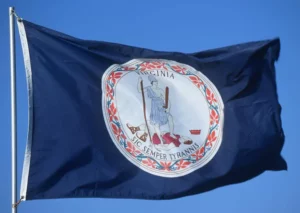 by Nelson Fegley
by Nelson Fegley
To discuss this subject properly we first need to define the phrase “Culture War.” With the help of Wikipedia, it may be described as “a cultural conflict between different social groups to impose their own virtues, beliefs and practices over society. Culture wars often delve around wedge issues, often based on values, morality and lifestyle.” Other terms often used in discussing these values include: diversity, equity and inclusion (DEI), and in the corporate world: environmental, social, and governance (ESG). The social part of ESG is often taken to mean involvement of DEI.
Why is it important to consider this issue? The phrase “Culture Wars” was coined by James Davison Hunter, a prominent educator at the University of Virginia. In his book on this subject he describes a battle for control of American culture and social institutions pitting conservative religious groups against opposing politically progressive counterparts. The progressive movement has adopted far left concepts of identity politics which are changing our society in ways that are anathema to conservatives who are concerned about the future of our democracy. The conflict in values and practices between these two groups will be major issues in the 2024 presidential election. More about this below.
Virginia has significant constituencies on both sides of this polarized political spectrum. Progressives are dominant in the highly populated northern counties. Critical Race Theory (systemic racism) became the recent hot button issue when parents discovered its use in the Loudoun County schools and confronted the school board. The issue received national exposure when the FBI was reportedly directed to monitor the parents’ activities. CRT is typically embedded in the normal activity of class instruction, and therefore difficult to recognize. In this regard, the Loudoun parents were exceptional. The publicity accorded this case alerted the residents of the state and likely contributed to Glenn Youngkin’s winning the gubernatorial election. While the citizens in Virginia’s northern suburbs tend to support progressive issues, much of the rural parts of the state tend to be politically more conservative. When my wife and I moved to Bumpass from New Hampshire in 2020, the many signs on front lawns and on the shores of Lake Anna clearly showed strong support for Trump (2020 election) and disdain for Biden.
Freedom of speech has recently become a much-discussed part of the Culture Wars, with pro-Palestinian demonstrations erupting on many college campuses. Three college presidents testified before Congress regarding their policies on allowing speech on campus. The Foundation for Individual Rights and Expression (FIRE) has generated ratings for colleges regarding climate for free speech. As you might expect, Harvard came in last at #248, and the U. of Pennsylvania at #247. To my surprise, UVa was rated #6, and Va Tech #160. I graduated from Va Tech in 1962, and at that time free speech on campus was not an issue. I received a graduate degree from the U. of Pennsylvania in 1964, and there also speech was not an issue. A lot can change in 60 years.
What the heck has been going on? Our slide into “wokeness” has been studied by many in academia and the think tanks. Among the best of these scholars is Christopher Rufo, a senior fellow at the Manhattan Institute. I highly recommend his book: America’s Cultural Revolution. It is a major source of information for this column. America’s cultural revolution began in the late 1960’s, as we endured student uprisings, urban riots, and revolutionary violence. The capture of America’s institutions, however, was so gradual and bureaucratic that it escaped public notice until the protests following the death of George Floyd. DEI has been created to enforce the new orthodoxy across public and private bureaucracies. The ultimate goal is to replace individual rights with group identity-based rights, enact a scheme of race-based wealth redistribution, and suppress speech.
In the early 1970s Herbert Marcuse, a far-left politician who had earlier migrated from Germany, noted that the far-left political violence had been defeated by law enforcement. He thus recommended returning to the universities and rebuilding the Marxist-inspired revolution. Eventually the students would take the theoretical knowledge (“critical theories”) and spread it by contagion through society. They introduced the concepts: ”institutional racism,” “white supremacy,” “white privilege,” “male supremacy,” “institutional sexism,” “cultural identity,” “corporate greed,” etc. The “critical theory revolution” has been almost invisible due to the slow, steady way in which it was introduced. In 1977, a group of black lesbian activists invented the tern “identity politics.” This new revolution within the institutions has been absorbed into the legislative agenda of the Democratic Party.
The extension of this ideology to K-12 school systems in many parts of the nation was accomplished with the help of a Brazilian Marxist, Paulo Freire. His book Pedagogy of the Oppressed is widely used to help design the curricula in U.S. public school systems. It involves a system where the U.S. is first framed as an oppressive society. The students are then separated into “oppressor” and “oppressed” groups, then transformed into activists for antiracism. It is this process that the astute parents in Loudoun County recognized.
There is much more to say on this subject, but I think the above information clarifies why the 2024 presidential election is so important. On the one side we may well have a candidate who thrives on chaos – someone who I believe will have difficulty attracting the kind of people he needs to govern effectively. On the other side may be a candidate who is mentally impaired and surrounded by people who embrace the “woke” ideology described above. Let’s hope we are offered better choices than these. But in any case, for the sake of our democracy this is a really important election.
Nelson Fegley is a retired mechanical engineer who lives in Bumpass.


